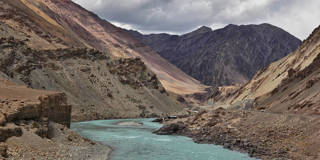For any treaty to survive, the advantages it confers on all parties must outweigh the duties and responsibilities it imposes. The Indus Waters Treaty – widely considered the world’s most generous water-sharing pact – is nowhere near meeting that standard for India, and it is in Pakistan’s interest to remedy that.
NEW DELHI – More than six decades ago, the world’s most generous water-sharing pact was concluded. Under the Indus Waters Treaty (IWT), upstream India left the lion’s share of the waters from the subcontinent’s six-river Indus system for downstream Pakistan. But repeated Pakistani efforts to use the treaty to disrupt India’s efforts to safeguard its own water security have driven India to rethink its largesse.

NEW DELHI – More than six decades ago, the world’s most generous water-sharing pact was concluded. Under the Indus Waters Treaty (IWT), upstream India left the lion’s share of the waters from the subcontinent’s six-river Indus system for downstream Pakistan. But repeated Pakistani efforts to use the treaty to disrupt India’s efforts to safeguard its own water security have driven India to rethink its largesse.